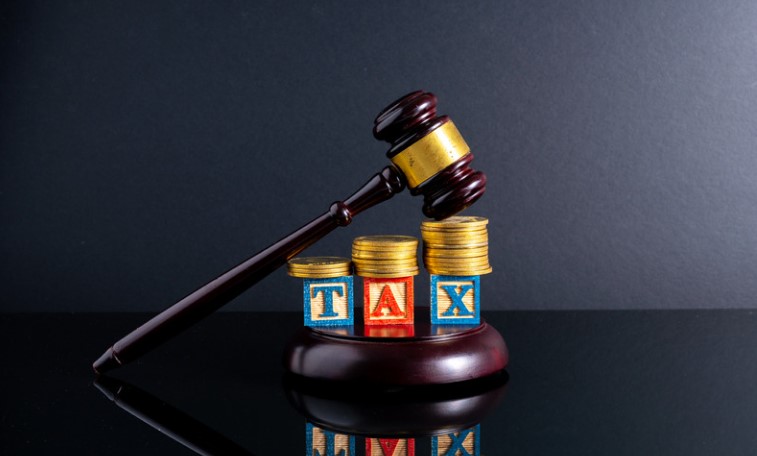Your credit score is like a financial report card, and in Canada, it can make or break your chances of securing a loan or getting approved for a credit card. However, what precisely makes a good credit score? If you’re unsure whether your current rating measures up to the standards set by lenders, this article will provide all the information you need. From understanding how scores are calculated to tips for maintaining a high rating, we’ll explore everything you need to know about what makes a good credit score in Canada. So grab your notepad and let’s dive into the world of credit ratings!
Understanding Credit Scores in Canada

A three-digit number that represents your creditworthiness is your credit score. In Canada, the range of credit scores is between 300 and 900, with higher numbers indicating better credit health. Credit bureaus calculate your rating based on several factors, including payment history, the amount owed, length of credit history, types of accounts held and recent inquiries.
Your payment history makes up around 35% of your overall score. Late or missed payments can harm your rating significantly as it shows lenders that you’re not reliable when it comes to paying back debt. Your amount owed makes up another 30%, so keeping balances low and avoiding maxing out lines of credit can help boost your score.
The length of time you’ve had active accounts also plays a role in determining your score. The longer you have been using credit responsibly, the more credible you appear to lenders. However, opening too many new accounts at once could hurt this factor.
The types of accounts held make up about 10% each while recent inquiries count for about another 10%. Understanding how these factors impact your overall rating will help you take steps toward improving it!
What is a Good Credit Score in Canada?
Credit scores are essential in Canada as they determine your creditworthiness and financial health. A good credit score means that you have a history of responsible borrowing and repayment behaviour, making you less risky to lenders. But what exactly is considered a good credit score in Canada?
Credit scores range from 300 to 900, with the majority of Canadians having a score between 600 and 750. A good credit score in Canada usually ranges from 660 to 724, but it’s important to note that each lender has their criteria for evaluating creditworthiness.
A higher credit score indicates a lower risk for lenders when considering an application for loans or mortgages, which translates into more favourable terms such as lower interest rates or larger loan amounts. In contrast, a poor credit rating could lead to rejection of your loan application or approval on unfavourable terms such as higher interest rates or smaller loan amounts.
Therefore, maintaining a good credit score is crucial if you want access to affordable loans and other forms of financing.
Importance of a Good Credit Score in Canada
- A good credit score is crucial for financial stability and success in Canada. Your credit score reflects your borrowing history, which can impact your ability to secure loans, mortgages, or even rent an apartment.
- Having a high credit score shows lenders that you are a responsible borrower who pays their debts on time. It also gives them confidence that you will be able to pay back any money they lend to you with interest.
- A good credit score can result in lower interest rates on loans and mortgages, saving you thousands of dollars over the lifetime of the loan. This means more money stays in your pocket instead of going towards paying off high-interest debt.
- Furthermore, having a good credit score can open doors to better job opportunities since many employers check potential employees’ credit histories as part of their hiring process.
- Maintaining a healthy credit score is essential for long-term financial health and stability in Canada. By keeping up with payments and practicing smart spending habits, anyone can achieve a strong credit rating and enjoy its numerous benefits.
How do Lenders Use Credit Scores?

Lenders use credit scores as a quick and easy way to assess the creditworthiness of potential borrowers. A high score indicates that the borrower has a good track record of paying their debts on time, while a low score suggests that they may be less reliable.
A lender will typically look at your credit score along with other factors, such as your income and employment history when deciding whether or not to approve you for credit. If you have a good score, you are more likely to be approved for loans in Canada and credit cards with favourable terms and interest rates.
On the other hand, if you have a poor or average score, lenders may see you as being at higher risk and either decline your application or offer less favourable terms. This could mean higher interest rates, lower limits on your credit card or loan products.
Maintaining a good credit score is essential if you want to access affordable borrowing options in Canada. Staying up-to-date with payments and managing debts responsibly over time can help boost your chances of getting better deals from lenders in the long run.
Tips for Maintaining a Good Credit Score
Maintaining a good credit score is essential for securing loans and favorable interest rates in Canada. The following suggestions will assist you in keeping a high credit score:
- Pay Your Bills on Time: Late payments can significantly impact your credit score. Ensure that you pay all of your bills on time each month, including any outstanding balances.
- Keep Your Credit Card Balances Low: High balances on your credit cards can negatively affect your credit score. Aim to keep the balance below 30% of your available credit limit.
- Limit New Credit Applications: Avoid applying for multiple lines of new credit within a short period as it will make creditors see you as desperate or financially unstable, which could lower your rating.
- Regularly Review Your Credit Report: Check regularly for errors or fraudulent activity and report them swiftly if found.
- Maintain an Active Credit History: Keeping old accounts open and active helps demonstrate steady financial responsibility over time.
By following these tips, you’ll be able to maintain a good Canadian credit score that can improve access to better loan options with more favourable interest rates!
How to Check Credit Scores in Canada?

Checking your credit score in Canada is an essential step toward financial stability. You can check your credit score for free from two major credit bureaus, Equifax and TransUnion. When you request a copy of your report online or by mail, always ensure that you are providing accurate information about yourself.
- To get started with checking your credit score, visit the website of either Equifax or TransUnion and follow the prompts. You will need to provide some personal information like name, address, date of birth and social insurance number.
- Once you have successfully submitted all required details, you’ll receive a copy of your current credit report within minutes via email or postal mail depending on the option chosen during registration.
- It’s important to review each item on your report carefully and make sure everything is correct because even small errors could negatively affect your overall rating. If there are any inaccuracies found in the report file a dispute with the relevant bureau immediately.
Regularly checking your credit score helps to identify potential issues before they become bigger problems affecting future loan applications or interest rates offered by lenders.
Conclusion
Having a good credit score is crucial for financial success in Canada. It can affect your ability to get approved for loans, mortgages, and credit cards. Therefore, it’s essential to understand how credit scores work and the factors that impact them.
By maintaining a good credit score through responsible borrowing habits such as paying bills on time and keeping debt levels low, you’ll have better access to favorable interest rates when applying for new lines of credit.
Remember always to check your credit report regularly and dispute any errors or inaccuracies promptly. By doing so, you’ll be able to maintain an accurate record of your finances while also ensuring that lenders see an accurate picture of your financial history.
We hope this article has shed some light on what makes a good credit score in Canada and the importance of maintaining one. By following our tips above, we’re confident you’ll be well on your way toward achieving a healthy financial future.
FAQs on what is a good credit score in Canada
1. What is a average credit score in Canada?
Around 650 is the average credit score in Canada.
2. Is it possible to get a 900 credit score in Canada?
Yes, your credit score in Canada flows from 300 to 900, with 900 representing a perfect score. It’s fantastic if your score is between 780 and 900. It’s considered to be a solid score if it’s between 700 and 780, so you shouldn’t have too much trouble getting authorized at a terrific rate.
3. What does an 800 credit score get you?
A credit score of 800 or higher indicates to lenders that you are a superb borrower. You may be qualified for lower interest rates on car and mortgage loans if your credit score is high. You can also be qualified for credit cards with better rewards and points, such as access to airport lounges and free breakfast at hotels.
4. What increases your credit score?
Your credit score is influenced by a history of timely payments, low credit card balances, a diversity of credit card and loan accounts, older credit accounts, and a low number of credit inquiries.
5. What badly affects credit score?
Absence or late payments. accounting for collections. The account balances are excessive. Your credit limit is dangerously close to being reached because of the balance on your revolving accounts, such as credit cards.










